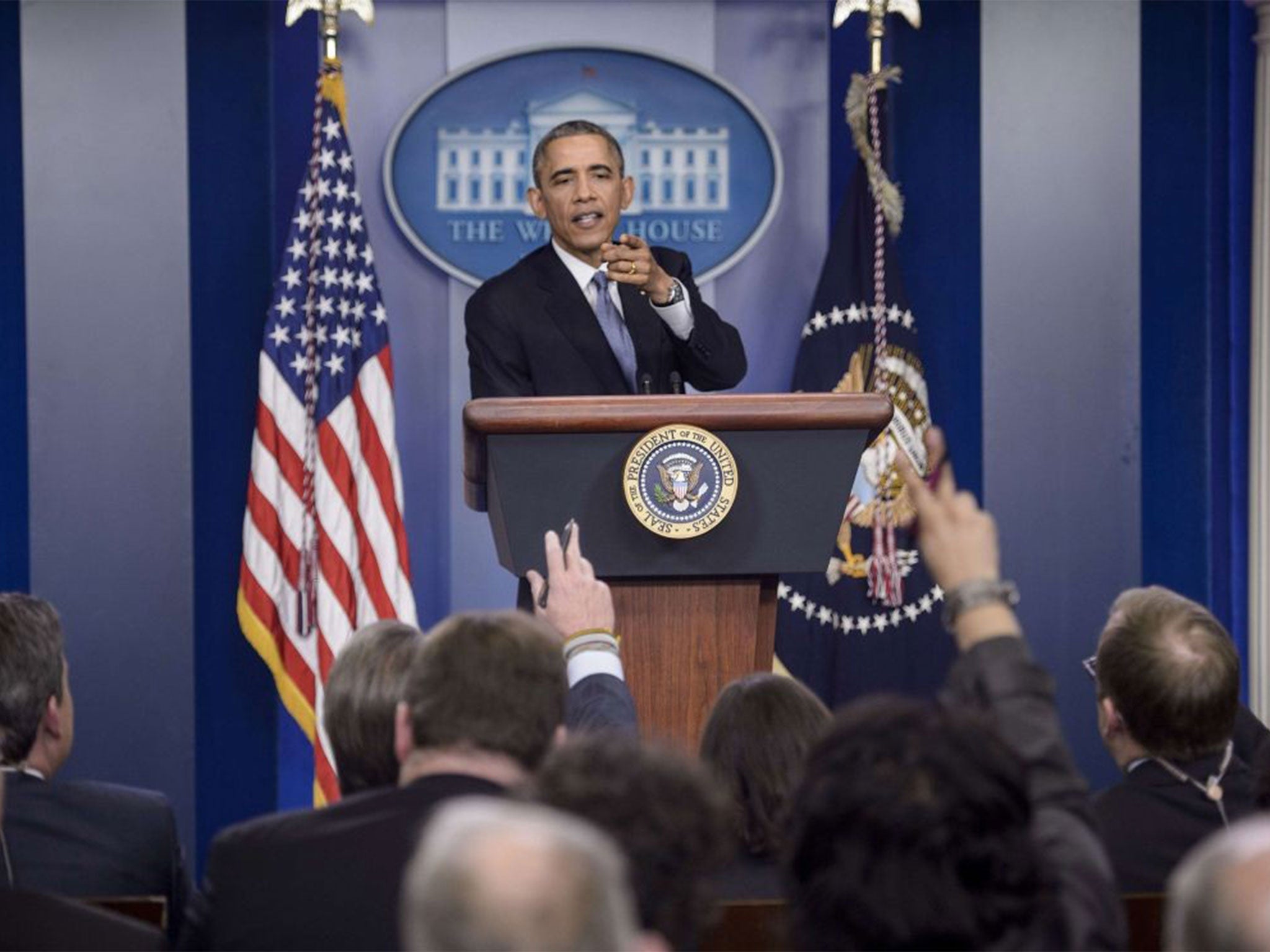Obama criticises Sony for cancelling 'The Interview' and promises a proportional response to alleged North Korean cyber-attack
'We cannot have a society in which some dictator someplace can start imposing censorship here in the United States', Obama tell reporters

US President Barack Obama has said Sony Pictures “made a mistake” in capitulating to threats from a North Korean-sponsored hacker group, by cancelling the release of its film The Interview.
During his end-of-year press conference at the White House today, Mr Obama acknowledged that Sony had suffered “significant damage” in a cyber-attack last month, which left its computer systems crippled and vast amounts of sensitive corporate data leaked online.
But while he was “sympathetic” to the studio, he said: “We cannot have a society in which some dictator someplace can start imposing censorship here in the United States. If somebody is able to intimidate folks out of releasing a satirical movie, imagine what they start doing when they see a documentary they don’t like, or news reports they don’t like.”
He went on: “Even worse, imagine if producers and distributors and others start engaging in self-censorship because they don’t want to offend the sensibilities of somebody whose sensibilities probably need to be offended.”
The FBI formally confirmed today that North Korea was behind the Sony hack. Mr Obama said the US intended to respond “proportionately... a place and time and manner that we choose.”
The Interview, the film that apparently prompted the attack, is a comedy about two US TV journalists enlisted by the CIA to assassinate the North Korean leader, Kim Jong-un. “It says something interesting about North Korea that they had the state mount an all-out assault on a movie studio because of a satirical movie starring Seth Rogen and James Franco,” Mr Obama said.
The President added that he was keen for Congress to pass new legislation to bolster cybersecurity in both the public and private sphere, saying that future attacks could affect the US economy in “extraordinarily significant” ways. “All of us have to anticipate occasionally there are going to be breaches like this. They’re going to be costly, they’re going to be serious,” he said. “But we can’t start changing our patterns of behaviour any more than we stop going to a football game because there might be the possibility of a terrorist attack.”
Join our commenting forum
Join thought-provoking conversations, follow other Independent readers and see their replies
Comments